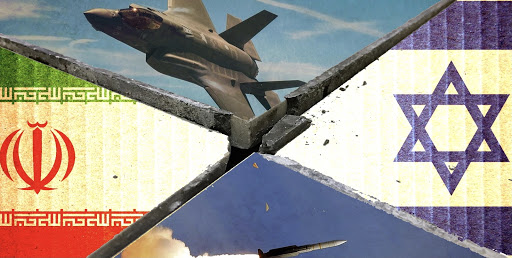Unless the world is to avoid a regional war with global repercussions, it must move quickly.
Amid the Israel-Iran Escalation,
It’s Time for a Region-wide Ceasefire
Daoud Kuttab / Al Jazeera
(APRIL 14, 2024) — When the Israeli Prime Minister Benjamin Netanyahu approved the air strike on the Iranian consulate in Damascus, he knew what he was doing. Although any attack on a diplomatic mission is a clear violation of the 1961 Vienna Convention on Diplomatic Relations, the Israeli leader proceeded, hoping to divert attention from his failures in the Israeli war on Gaza.
With Israel having previously carried out a series of assassinations against Iranian officials and scientists, this act was hard to deny. No other power in the region could conduct such a brazen violation of international law regarding the sanctity of diplomatic missions.
Coming on the heels of other Israeli attacks on Iranian targets in Syria, this was a provocative act aimed at establishing military hegemony in the region.
For their part, the Iranians were caught in a bind. The international response to the brazen Israeli defiance of international law was muted, especially in the West, and Tehran could no longer tolerate the Israeli provocations. Iran also has its own considerations of military deterrence in the region.

The result was an attack from Iranian territory, which sent a clear message to Israel and its allies. It demonstrated the Iranian capabilities but also provided space for de-escalation. Iranian Foreign Minister Hossein Amirabdollahian described the attack as “limited” and said Tehran had warned the United States ahead of launching it.
Thanks to a deployment of US forces to the region and Israel’s own air defence capabilities, nearly all of the drones and missiles Iran launched were intercepted.
This display of military power by Israel and Iran has left the rest of the Arab world terrified of what another regional war could do to an already devastated region. And if it is to take place, there will be not just regional, but global repercussions. Any regional Iranian-Israeli conflict will pull in the Gulf countries, but also the US, Russia and China, creating a potentially explosive global confrontation.
As Israel and Iran are establishing this new “balance of terror”, the international community has to act. The United Nations Security Council must pass a strong binding resolution imposing a full ceasefire in the region that includes the occupied Palestinian territories, Israel, Iran and all neighboring countries involved, as well as non-state actors.
Importantly, this resolution must recognise that at the core of much of the instability in the region is the unresolved Palestinian question.
Therefore, it needs to call for an end to Israel’s genocidal invasion of Gaza and the exchange of captives. It must provide a clear roadmap to Palestinian statehood and the end of the Israeli military control of all Arab territories occupied in 1967. It must create an international peacekeeping force that will ensure compliance by all parties, especially in Gaza but also in the West Bank, where settler violence has reached unprecedented levels.
Daoud Kuttab is an award-winning Palestinian journalist.
